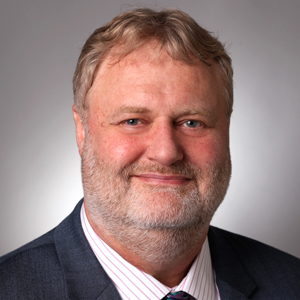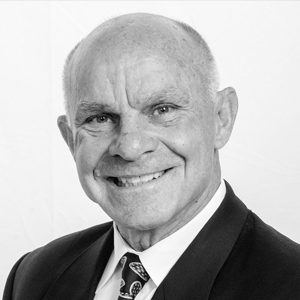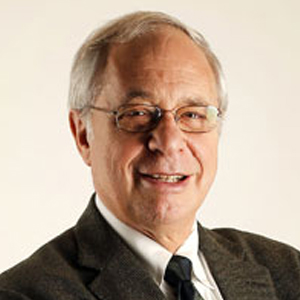John H. Exton: A cell signaling pioneer
The cell signaling community lost one of the giants in the field when John H. Exton died on December 18. He was 89.
After immigrating to the U.S. from New Zealand in 1963, John spent his entire scientific career at Vanderbilt University in Nashville, Tennessee, where he was a distinguished member of the faculty for almost six decades, including 36 years, from 1968 to 2004, as an investigator of the Howard Hughes Medical Institute. He also was an associate editor and editorial board member for the Journal of Biological Chemistry (JBC) and was a member of the American Society for Biochemistry and Molecular Biology from 1970 until his death.
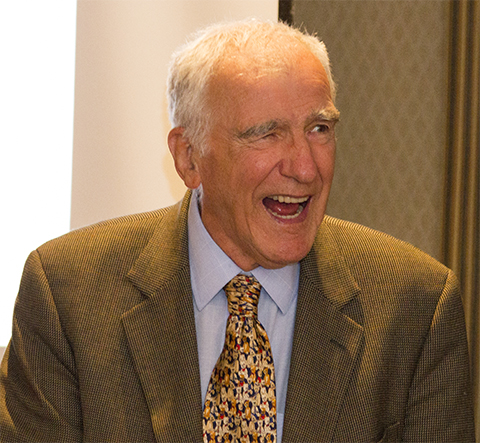
John was born in Auckland, New Zealand, on August 29, 1933, and retained a love of his home country throughout his life. He received a bachelor of medical science degree from the University of Otago in Dunedin, New Zealand. While he was there, he published his first research paper on the breakdown of pyrimidines in 1956. After completing an internship in medicine, he pursued a Ph.D. in biochemistry in Dunedin, studying the metabolism of isolated liver cells with Norman Edson, formerly the first Ph.D. student of Hans Krebs.
John declined a United Kingdom Commonwealth Scholarship to attend Trinity College at Oxford University, instead joining the physiology department (now the molecular physiology and biophysics department) at Vanderbilt. He and his wife, Janet, traveled to the U.S. by ship across the Pacific, through the Panama Canal to Port Everglades in Florida, and then by train to Nashville — younger readers may have difficulty comprehending this arduous journey.
At Vanderbilt, John was mentored by Charles “Rollo” Park and Earl Sutherland, who would later win the Nobel Prize for Physiology or Medicine in 1971. John rose rapidly through the academic ranks, from instructor in 1964 to assistant professor in 1966, associate professor in 1968, and full professor in 1970. He was awarded emeritus status in 2019 and was regularly present on campus until the COVID-19 pandemic disrupted all our lives.
A distinguished career
John’s research provided fundamental insights into the mechanisms by which hormones control cellular physiology. He initially studied the control of gluconeogenesis by epinephrine, particularly via cyclic adenosine monophosphate, or AMP, signaling. He discovered that several other hormone receptors acted independently of cyclic AMP to increase intracellular calcium ion concentrations. Further work showed that these hormones worked by activating certain phospholipase C enzymes to induce the calcium increase. In a breakthrough study, his lab identified novel heterotrimeric guanosine-5'-triphosphate, or GTP, -binding proteins that regulate phospholipase C. In a later project, John discovered that small GTP-binding proteins activated another type of phospholipase (D) that had different roles in cell signaling.
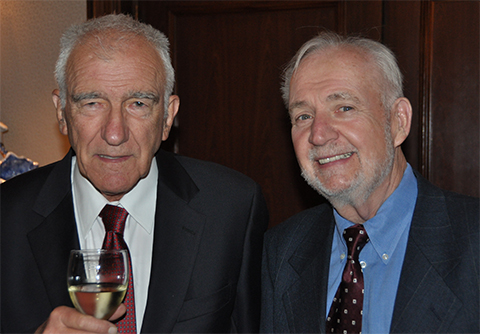
John’s work was published in over 360 scientific articles, including several with over 1,000 citations each, and he gave more than 340 seminars and presentations at scientific meetings and other institutions throughout the world. His contributions were recognized with many awards, including the Lilly Award and an Established Investigator Award from the American Diabetes Association, the Earl Sutherland Award and Stanley Cohen Award from Vanderbilt, and a Doctor Honoris Causa from the Autonomous University of Barcelona. John was named a fellow of the American Association for the Advancement of Science and an inaugural fellow of the American Physiological Society. In 2001, he was elected to the National Academy of Sciences of the United States.
John will be remembered as a respected teacher and colleague at Vanderbilt. He ran one of the university’s larger research groups, and his notable contributions included training numerous postdoctoral fellows and students who went on to successful independent careers.
Nashville memories
Together, the three of us were John Exton’s colleagues at Vanderbilt for a total of over 100 years. We remember him as a raconteur with a keen sense of humor and one of us christened him the “King of Puns.”
John and Janet were known for hosting costume parties in their younger days. On one notable occasion, they dressed up as the pope and a nun and then realized they needed to run to the grocery store to pick up some last-minute supplies, much to the amusement of the cashiers.
Joe Provost, a postdoc in the 1990s who is now a professor at the University of San Diego, recalls that John’s lab included at least 12 postdocs, a graduate student, two or more technicians, a lab manager, a lab secretary, and a JBC assistant. They all called him “The Chief,” and he was a demanding but caring mentor. He loved a joke and visiting with his personnel, but he made it clear they had to be productive, including working in the lab on Saturdays, no question, just as he did.
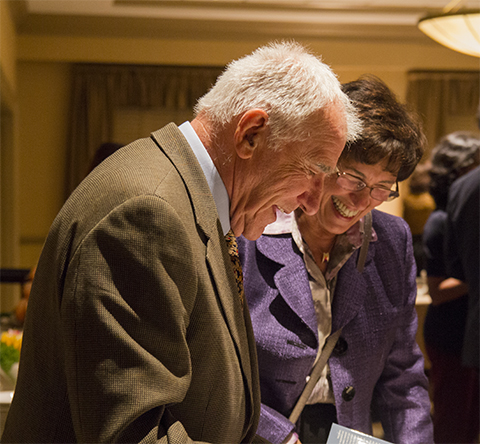
Two days after another postdoc, Rafat Siddiqui, arrived in Nashville from Pakistan, John and Janet turned up on his new doorstep with a truckload of furniture and other household goods. Siddiqui, now a Virginia State University professor, said the Extons spent the entire day helping him buy and transport everything else he needed to establish residence in a strange land. No doubt John and Janet remembered their own arrival in Nashville after the grueling journey from New Zealand.
Other postdocs remember being starstruck as they poured drinks and served food to Nobel laureates and other leaders in the signaling field at a party at John’s house in association with an international meeting held in Nashville.
Journal duties
John was a pillar of the broader scientific community and served in significant editorial roles with multiple society journals. He was an associate editor for the American Journal of Physiology from 1984 to 1991, and, perhaps most significantly, was an associate editor for the JBC for a quarter of a century, from 1988 to 2013.
Barbara Gordon, the recently retired executive director of the ASBMB, found it hard to concentrate when sitting next to John at associate editor meetings because he always provided a running commentary on the proceedings. She said he never failed to write and deliver a poem or a limerick at the end of each meeting to convey his thoughts on the topics and ideas that had been discussed.
Gordon also recalls that John helped brainstorm marketing slogans for the ASBMB and its journals. One of her favorites, printed on a T-shirt that was given to new JBC editorial board members at their orientation, featured the words “I’m doing hard labor because of Herb Tabor,” accompanied by a portrait of the great long-term editor-in-chief himself.
The current JBC editor-in-chief, Alex Toker, remembers John as “a scholar, a gentleman, and wonderfully eccentric.”
John was productive throughout his long and illustrious career. He taught us much about cellular signaling. He took his role as an educator seriously, demanding a lot from his students but giving a lot back in return. At the same time, he protected the standards of the JBC for a quarter of a century.
Despite his professional commitments, John was a devoted husband and father. His sense of humor was unique and well-known to all. He will be missed, but generations of young scientists still benefit from his career and tutelage.
John is survived by Janet, his wife of 65 years; son Richard and wife Maralie, and sons Peter and Stephen; and grandchildren, Richard Jr., Lyndon, Emma, and Leighton Belmont.

Enjoy reading ASBMB Today?
Become a member to receive the print edition four times a year and the digital edition monthly.
Learn moreGet the latest from ASBMB Today
Enter your email address, and we’ll send you a weekly email with recent articles, interviews and more.
Latest in People
People highlights or most popular articles

Simcox wins SACNAS mentorship award
She was recognized for her sustained excellence in mentorship and was honored at SACNAS’ 2025 National Conference.

From humble beginnings to unlocking lysosomal secrets
Monther Abu–Remaileh will receive the ASBMB’s 2026 Walter A. Shaw Young Investigator Award in Lipid Research at the ASBMB Annual Meeting, March 7-10 in Washington, D.C.

Chemistry meets biology to thwart parasites
Margaret Phillips will receive the Alice and C. C. Wang Award in Molecular Parasitology at the ASBMB Annual Meeting, March 7-10 in Washington, D.C.

ASBMB announces 2026 JBC/Tabor awardees
The seven awardees are first authors of outstanding papers published in 2025 in the Journal of Biological Chemistry.

Decoding how bacteria flip host’s molecular switches
Kim Orth will receive the Earl and Thressa Stadtman Distinguished Scientists Award at the ASBMB Annual Meeting, March 7–10, just outside of Washington, D.C.

Thiam elected to EMBO
He was recognized during the EMBO Members’ Meeting in Heidelberg, Germany, in October.

